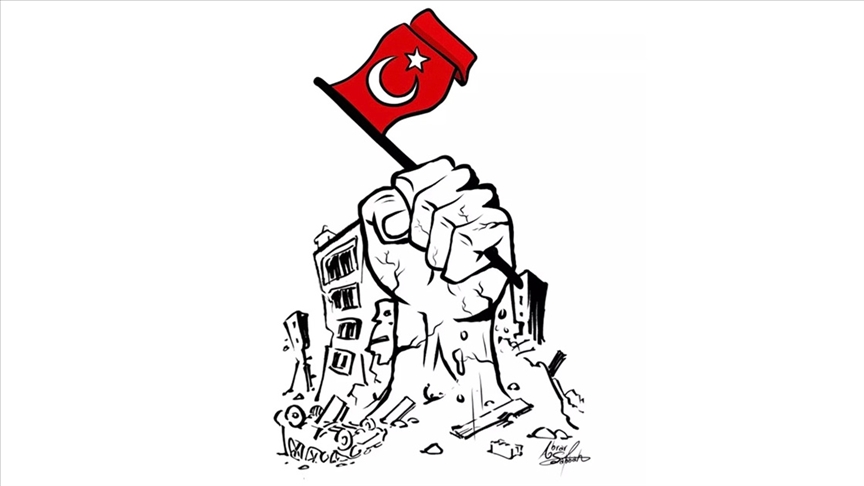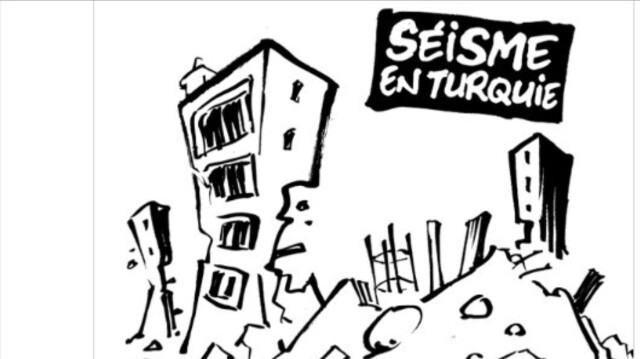Muta is located to the south of Lake Galilee, 50 km from Jerusalem. At the beginning of the 8th year (Gregorian 629) Prophet Muhammad (pbuh) sent Harith ibn Umayr al-Azdi with a letter of invitation to Islam to the governor of Busra, who was a representative of the Byzantine Empire. While the messenger was passing through the lands of Shurahbil ibn Amr, the emir of Gassani, he was killed by ibn Amr. Harith ibn Umayr is the only messenger of Prophet Muhammad (pbuh) to have been killed. As a result of the open violation of international laws that prescribed the immunity of the messengers, Prophet Muhammad (pbuh) prepared an army of 3,000 and assigned Zayd ibn Haritha as its commander.
He commanded that Ja'far ibn Abu Taleb be commander if Zayd was killed, Abdullah ibn Rawaha to be commander if Ja'far was killed, and the Muslims would choose a commander among them if Rawaha was martyred. Prophet Muhammad (pbuh) also ordered that they go to the place where the emissary had been killed and invite the people there to Islam; if they accepted they were not to fight He advised them not to kill the children, women, old people, or the people who took shelter in the monasteries, as well as avoiding damaging the date fields cutting the trees and destroying buildings.
The Islamic army reached Muta after crossing the Wadi al-Qura and Maan. There they came across a large army whose number was said to have been 100,000 or 200,000, under the general command of Theodoros, the commander of the Byzantine armies. The army included Christian Arab tribes led by Shurahbil ibn Amr (Jumada al-awwal 8/September 629). The banner was taken by Ja'far ibn Abu Taleb when Zayd ibn Haritha was martyred at the beginning of the war. As the battle got more intense, Ja'fer ibn Abu Taleb jumped off his charger and tied its forelegs together, fighting until he lost his right hand. He then held the flag in his left hand, which was later cut off along with his arm, but he still continued to hold it with his teeth. He fell down dead in the battlefield after being speared in the chest. The banner was now held aloft by Abdullah ibn Rawaha. He too fought bravely until he was killed. Now the Muslim troops rallied around Khalid ibn al-Walid, who took the banner in his hand after Abdullah ibn Rawaha was martyred. According to some accounts, while the Muslims were fighting the enemy at Muta, Prophet Muhammad (pbuh) was giving a description of the conflict in Medina. When the command was given to Khalid ibn al-Walid on the front, Prophet Muhammad (pbuh) said: "Finally one of Allah's swords (meaning Khalid ibn al-Walid) has taken the banner and will hold it until Allah grants them success." Khalid ibn al-Walid, wanting to give the impression that reinforcements had arrived from Medina, took soldiers from the right flank to the left flank and soldiers from the left flank to the right flank, soldiers from the rear to the front ranks and the soldiers from the front flanks to the rear. He succeeded in bringing the Islamic army to Medina, inflicting some damages on the enemy from time to time and gaining some loot.
Fifteen Muslims were martyred at Muta. Prophet Muhammad (pbuh) shed tears for the martyrs but he prohibited crying and wailing in distress. Prophet Muhammad (pbuh) also requested that the relatives of the martyrs bring food to the families of the martyrs and help them in their tasks for three days. Prophet Muhammad (pbuh) sent food to the household of Ja'far, his cousin. He later took Ja'far's children with him and looked after them.
The warriors of Islam fought the enemy army with determination in Muta, even though it was much greater. Khalid ibn al-Walid, who accepted Islam when Prophet Muhammad (pbuh) went to Mecca for umratu al-kaza (circumambulating the Kaaba outside the times of pilgrimage) and who first participated in a war with the Muslims and commanded the army, was praised by Prophet Muhammad (pbuh) for his success in the battle and was given the title of "Allah's sword" (Sayfullah). Khalid ibn al-Walid said, "At the battle of Muta, nine swords were broken in my hand, I finally held only a Yemeni broad-sword." Abdullah ibn Umar and his friends stated that Ja'far ibn Abu Taleb received wounds from more than fifty swords, arrows and spears. About Ja'far ibn Abu Taleb Prophet Muhammad (pbuh) said, "Allah has given two wings to Jafar in place of his arms. He flies in the Paradise whenever he likes". This is the reason that he is known as Ja'far al-Tayyar.
Although the Battle of Muta was a night attack in which Prophet Muhammad (pbuh) did not participate, it has been regarded as a battle in some sources, probably due to the greatness and importance of the struggle and that it involved hand-to-hand combat.
The Islamic army first encountered the Byzantine army, the army of one of the greatest empires of the period, in this battle. The fact that the Islamic army returned to Medina without many casualties after encountering an army that was superior in terms of numbers and battle power must be regarded as a success. Dr. Mustafa Fayda states the importance of this battle for the Muslims in the following words: "Thanks to the Battle of Muta, Khalid and the Muslims gained an opportunity to learn the battle style, tactics and weapons of the Byzantine army closely. The benefit of this experience would be seen in the following battles that were fought against the Byzantine army, particularly the Battle of Yarmuk. The Arabs in Syria and Palestine saw the faith, bravery and courage of the Muslims, and they began to learn about the new religion and its members." (see Fayda, Allah'in Kilici Halid b. Velid (Allah's Sword: Khalid ibn Al-Walid), p. 168).
Subscribe to:
Post Comments (Atom)









SUBHANALLAH todayz muslims need such bravery and courage
ReplyDeletealhamdulillah.we have a great history so we should be more faithful to god.
ReplyDeleteEvery incident in life of prophet pbuh is a miracle. The only instance in history of such a massive mismatch in the number of army is of mutah, and even then Muslim didn't give up. Subhanallah!!!
ReplyDeleteThe Bravery of Hazrat Jafar is worth appreciating
ReplyDeletevery good account on battle of mutah
ReplyDeletevery good account on battle of mutah
ReplyDeleteMa sha Allah that was a magnificent victory
ReplyDelete